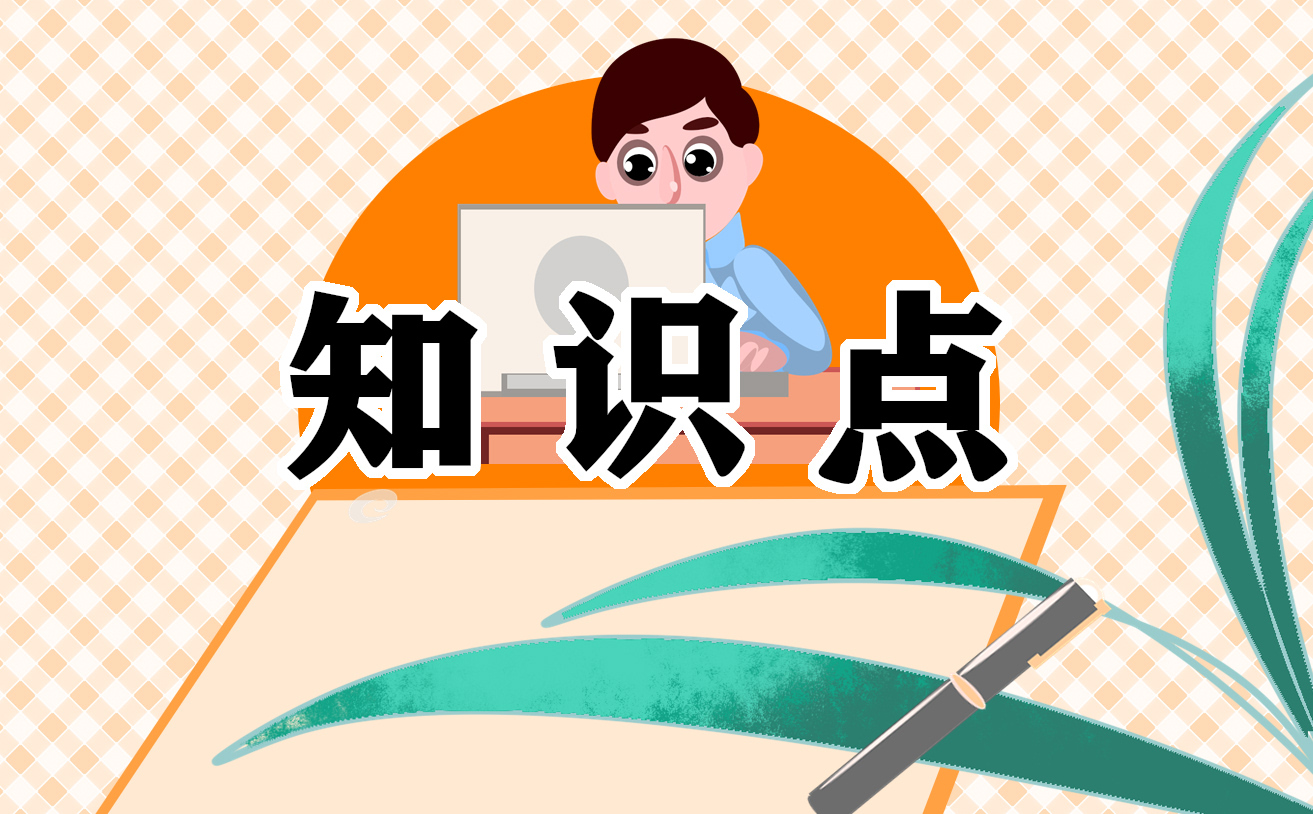没有加倍的勤奋,就没有才能,也没有天才。天才其实就是可以持之以恒的人。勤能补拙是良训,一分辛苦一分才,勤奋一直都是学习通向成功的最好捷径。下面是小编给大家整理的一些六年级英语的知识点,希望对大家有所帮助。

小学六年级英语知识点:语法
1. 表示以前没有某物的句型
There was no + 单数名词或不可数名词 + 过去时间。There was no library in my old school.
There were no + 复数名词 + 过去时间。There were no computers or Internet in my time.
注意: no+ 名词相当于not a / an / any + 名词。 There weren’t any computer rooms at all. There was no gym ,either.
2. 表示不喜欢的句型
I didn’t like + 名词或动名词。如:
Before I didn’t like dogs. Before I didn’t like beef. Before I didn’t like going running.
3. 表示过去不能做或不会做的句型
I couldn’t + 动词原形。 I couldn’t go cycling before. People couldn’t use the Internet in the Tang dynasty.
4. 如何描述某人过去和现在的不同情况
① 外貌和性格:Before, 主语+was / were +形容词. Now,主语+am / is / are +形容词.
Before I wasn’t tall. I was quiet. Now I am tall. I am active.
Before she had short hair. Now she has long hair.
Before he didn’t wear glasses. Now he wears glasses.
②能力方面:Before, 主语+couldn’t +动词原形. Now, 主语+can +动词原形.
Before I couldn’t swim. Now I can swim very well.
③爱好方面:Before, 主语+didn’t like +名词 / 动词ing. Now, 主语+like +名词 /动词ing.
Before he didn’t like reading books. Now he likes reading books.
六年级英语知识点
go boating 去划船
go fishing 去钓鱼
go for a walk 去散步
go home 回家
go on a diet 节食
go out 出去
go shopping 去购物
go sightseeing 去观光
go skating 去溜冰
go skiing 去滑雪
go straight on 直走
go swimming 去游泳
go to bed 去睡觉
go to school 去上学
go to the cinema 去看电影
go to work 去上班
have a bath 洗澡
have a Chinese lesson 上语文课
have a cold 感冒
have a fever 发烧
have a good time 玩得开心
have a headache 头痛
have a look 看一看
have a picnic 举行野餐活动工
have a rest 休息
have a stomachache 胃痛
have a tooth-ache 牙痛
have a trip 去旅游
have a try 试一试
have been to 到过
小学六年级英语学习方法技巧
“Good beginning is half done”,对于小升初英语作文,开头是在阅卷老师面前的第一次亮相,它将决定你所写的文章在阅卷老师心中所留下的第一印象。我们该怎样一提起笔就让自己成功一半呢?
1. “开门见山”式开头
一般来说,文章的开头应尽量做到“开门见山”,即要用简单明了的语言引出文章的话题,使人一开始就能了解文章要说明的内容。
①. 对于叙事类的文章,可以在开头把人物、时间、事件和环境交代清楚。如“A Trip to Huangshan(黄山之旅)”的开头可以是:Last month, my family went to Huangshan by train. It took us ten hours to get there. What a long and tiring journey! We were tired but the beautiful scenery excited us.
②. 对于论述性的文章,可以在开头处先阐明自己的观点,接着展开进一步的论述。如“The Time and the Money(时间和金钱)” 的开头可以是:Most people say that money is more important than time. But I don’t think so. First, when money is used up, you can earn it back, but……
2. 回忆性开头
在描述事件或游记类的文章中,采用回忆性的开头往往更能吸引人的眼球。这种类型的开头中通常含有描述自己心情或情绪的词汇,如never for get_r(永远无法忘记)、 remember (记得)、unfor gettable_r(难以忘怀的)、 exciting(令人激动的)、surprising(令人惊讶的)、sad (难过的)……如“A Trip to Huangshan(黄山之旅)”的开头还以这样写:I will never forget my first trip to Huangshan. 或It was really an unforgettable experience I had.
3. 疑问性开头
在叙事类或论述性的文章中,都可采用疑问型开头,这样既可以吸引阅卷者的注意又容易抓住中心。如“Planting Trees(种树)”的开头可以是:Have you ever planted trees? Don’t you think planting trees is ……再如“Traveling Abroad(出国之旅)”的开头可以是:If you have an opportunity to travel abroad, why not consider Singapore?
4. 倒叙式开头
在有的文章,特别是叙事类的文章中,可以采用倒叙的写作手法,先写出事件的结果,再陈述过程。如“Catching Thieves (捉贼)”的开头可以这样写:I lay in bed in the hospital. I smiled at my friends even though my legs hurt. Do you want to know what happened to me? Let me tell you. It’s a … story.
六年级英语课文知识点相关文章: